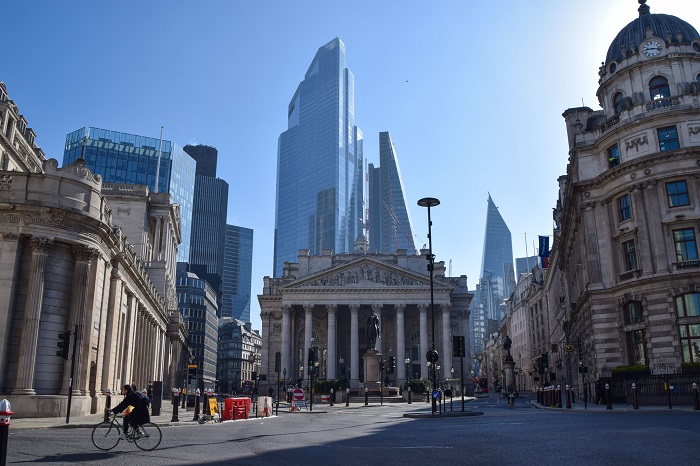Euro stocks close higher
Brussels — European stocks closed mostly higher on Wednesday on rising optimism about a rate cut by the Federal Reserve in September, and easing trade and geopolitical tensions.
Gains were somewhat modest in several markets, and traders chose to stay cautious at higher levels, choosing to wait for more economic data and news from the tariff front.
US Treasury Secretary Scott Bessent wants the Fed to keep the door open to a larger, 50 basis-point rate cut next month following recent weak job growth revisions. Investors are looking ahead to the meeting of US President Donald Trump and Russian President Vladimir Putin, scheduled to take place on Friday.
The pan-European Stoxx 600 climbed 0.54%. The UK’s FTSE 100 gained 0.19%, while Germany’s DAX and France’s CAC 40 closed up by 0.67% and 0.66%, respectively. Switzerland’s SMI advanced 0.78%.
Among other markets in Europe, Belgium, the Czech Republic, Denmark, Greece, Iceland, Ireland, the Netherlands, Norway, Spain and Sweden closed higher. Austria, Finland and Portugal edged up marginally. Poland and Russia ended weak, while Turkey closed flat.
In the UK market, pharmaceutical company AstraZeneca climbed about 3.25%. Spirax Group gained 3%, extending the previous session’s upmove. GSK, Convatec Group, Unilever, Antofagasta, BT Group, Croda International, Hikma Pharmaceuticals, Associated British Foods, JD Sports Fashion, Haleon, WPP, Informa, Natwest Group, Next, and Ashtead Group also closed notably higher.
Beazley tanked more than 12% after the insurer cut its full-year premium growth forecast. The company has revised its growth guidance to low-to-mid single digits to reflect prevailing market conditions. The company reported profit before tax of $502.5 million in the first half of 2025, down from $728.9 million in the prior year. Profit after tax for the period declined to $420.3 million or 65.4 cents per share from $571.6 million or 84.8 cents per share in the previous year.
Entain, St James’s Place, British American Tobacco, Coca-Cola Europacific Partners, Fresnillo, BP, Standard Chartered, Diageo, Weir Group, and Melrose Industries lost 1% to 2.5%. Persimmon closed lower by about 0.6%. The housebuilding company reported that its profit attributable to equity holders of the parent for the first half of 2025 declined to £100.0 million or 30.9 pence per share from £110.7 million or 34.3 pence per share in the previous year.
In the German market, Bayer, Fresenius, and SAP gained 3% to 3.3%. Fresenius Medical Care climbed nearly 3%. Beiersdorf, Zalando, Puma, BASF, Rheinmetall, Allianz, BMW, Munich RE, Commerzbank, and Daimler Truck Holding gained 1% to 2.5%. E.ON gained more than 1%. The energy utility company reaffirmed its annual adjusted earnings guidance after posting improved results for the first half. Siemens Energy tumbled more than 5%. MTU Aero Engines ended down 1.7%. Brenntag and Infineon closed modestly lower.
In the French market, EssilorLuxottica, LVMH, Publicis Groupe, and L’Oreal gained 2.3% to 3.2%. Sanofi, Kering, Capgemini, Edenred, BNP Paribas, Hermes International, Orange, AXA, Vinci, Air Liquide, Danone, and Dassault Systemes also posted strong gains. Schneider Electric, TotalEnergies, Societe Generale, Airbus, Legrand, and Safran ended with sharp to moderate losses.
Data from Destatis showed Germany’s consumer price inflation remained stable in July, as initially estimated. The consumer price index logged an annual increase of 2% in July, the same rate of rise as seen in June and matched the estimate published on July 31.
“The rate of inflation has stabilized since the start of the year and remained unchanged again for two consecutive months,” Destatis President Ruth Brand said.
Inflation based on the harmonized index of consumer prices slowed to 1.8%, as estimated, from 2% in June. Core inflation excluding food and energy was unchanged at 2.7%, in line with the initial estimate. On a monthly basis, consumer prices moved up 0.3% after remaining flat in June. The HICP posted a 0.4% rise, following a 0.1% increase in June. Monthly rates matched initial estimates.
Germany’s wholesale price inflation eased in July largely due to lower prices of solid fuels and mineral oil products, data from Destatis showed. Wholesale selling prices increased 0.5% year-on-year in July, slower than the 0.9% rise in June. Nonetheless, prices have increased for the eighth consecutive month. Month-on-month, wholesale selling prices edged down 0.1% in July.
©2025 dpa GmbH. Distributed by Tribune Content Agency, LLC.


